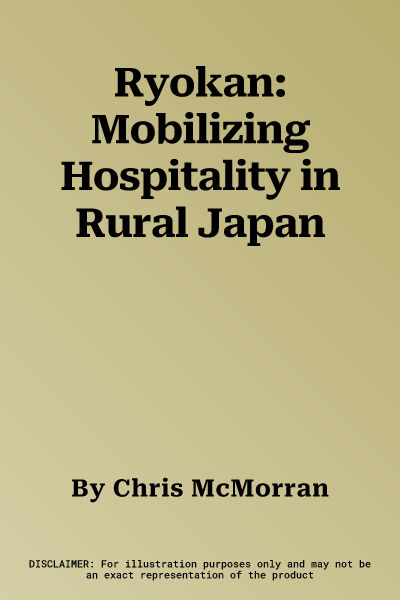Amid the decline of many of Japan's rural communities, the hot springs
village resort of Kurokawa Onsen is a rare, bright spot. Its two dozen
traditional inns, or ryokan, draw nearly a million tourists a year eager
to admire its landscape, experience its hospitality, and soak in its hot
springs. As a result, these ryokan have enticed village youth to return
home to take over successful family businesses and revive the community.
Chris McMorran spent nearly two decades researching ryokan in Kurokawa,
including a full year of welcoming guests, carrying luggage, scrubbing
baths, cleaning rooms, washing dishes, and talking with co-workers and
owners about their jobs, relationships, concerns, and aspirations. He
presents the realities of ryokan work--celebrated, messy, ignored,
exploitative, and liberating--and introduces the people who keep the
inns running by making guests feel at home.
McMorran explores how Kurokawa's ryokan mobilize hospitality to create a
rural escape from the globalized dimensions of everyday life in urban
Japan. Ryokan do this by fusing a romanticized notion of the countryside
with an enduring notion of the hospitable woman embodied by nakai, the
hired female staff who welcome guests, serve meals, and clean rooms.
These women are the face of the ryokan. But hospitality often hides a
harsh reality. McMorran found numerous nakai in their 50s, 60s, and 70s
who escaped violent or unhappy marriages by finding employment in
ryokan. Yet, despite years of experience, nakai remain socially and
economically vulnerable.
Through this intimate and inventive ethnography of a year in a ryokan,
McMorran highlights the importance of both the generational work of
ryokan owners and the daily work of their employees, while emphasizing
the gulf between them. With its focus on small, family-owned businesses
and a mobile, vulnerable workforce, Ryokan makes an invaluable
contribution to scholarship on the Japanese workplace. It also will
interest students and scholars in geography, mobility studies, and
women's studies and anyone who has ever stayed at a ryokan and is
curious about the work that takes place behind the scenes.

